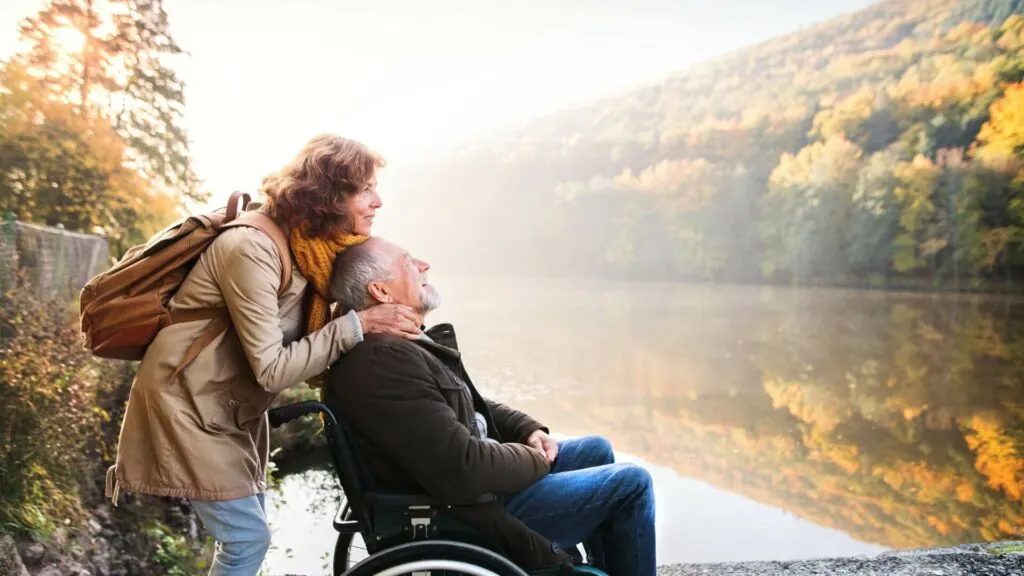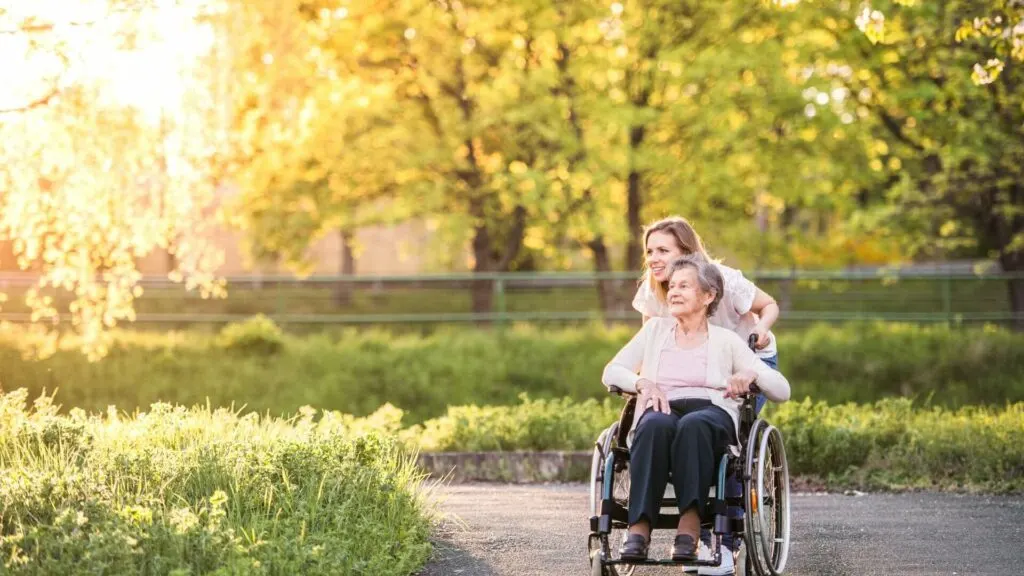Living with a disability is incredibly challenging, yet it’s an inescapable reality for millions of Americans. According to the CDC, more than 12 percent of all adults in the US have some form of disability that seriously restricts mobility. This can deprive you of your independence, as it means that you are forced to rely on others for everyday tasks that most people take for granted. When you have limited mobility, the idea of venturing out to simply enjoy some fresh air and reconnect with nature may seem unappealing, but it could be just what you need. While mobility limitations can present challenges, there are adaptive outdoor activities and accessible nature trails designed to accommodate people of all abilities, so before you dismiss the idea, consider some of the benefits associated with spending time outdoors.

Better Mental Health
The mental health benefits of spending time outdoors are well-established, with several studies showing that people who live in neighborhoods with more access to natural environments or green spaces are more resilient to stress and depression, which pose a significant threat to the well-being of people with limited mobility. Although it’s not clear how time spent outdoors boosts mental health, they are most likely linked to physiological responses that are triggered in nature. Of course, it’s also important that you talk to a therapist as mental health disorders require medical care, with outdoor activities serving as a complimentary therapy.
Better Physical Health
Spending time outdoors can offer numerous physical health benefits for individuals with disabilities despite mobility restrictions. Engaging in wheelchair walks, adaptive cycling, or accessible gardening can improve cardiovascular health, muscle strength, and joint flexibility. Additionally, exposure to natural sunlight promotes vitamin D synthesis, essential for bone health and immune function. Research also suggests that people with disabilities who are not active have a 50 percent higher risk of developing one or more chronic conditions such as diabetes or obesity, making outdoor activities even more important for your well-being.
Enhanced Relationships
People with disabilities often have feelings of isolation because of physical barriers to social participation, societal stigma, and limited accessibility to inclusive activities and spaces. In addition, most people only recognize the physical challenges of a disability, and it can be hard for them to understand the emotional burden of disability. Spending time outdoors won’t directly improve your relationships, but it will help by providing opportunities for meaningful engagement with other people in a more favorable environment. Outdoor activities and community events in the outdoors tend to be more inclusive, creating stronger bonds and better communication in relationships.

Improved Quality of Life
It’s no surprise that having a disability can have a huge impact on quality of life – from impacting your mental and emotional health to restricting physical activities and relationships; it affects every area of life, contributing to feelings of frustration, isolation, and reduced life satisfaction. However, these effects can be mitigated with outdoor activities or spending more time in green spaces. Research clearly shows that people who have greater contact with nature tend to have higher levels of happiness, healthier social interactions, better mental health, and a stronger sense of purpose and fulfillment.
Can Be Therapeutic for Conditions that Limit Mobility
Conditions such as arthritis, multiple sclerosis (MS), spinal cord injuries, and stroke are common causes of disability or limited mobility. For people living with such conditions, there’s an added incentive to spend time outdoors – it is therapeutic. While any outdoor activities will improve joint flexibility, muscle strength, and overall physical function, there are also less obvious benefits. Social interactions and mood enhancement associated with time spent outdoors can be particularly beneficial for individuals with spinal cord injuries or stroke who may experience emotional and psychological challenges. Moreover, spending time in nature has been linked with lower levels of pain, making it therapeutic for chronic pain disorders.

Outdoor Benefits for Limited Mobility: 5 Reasons to Get Outside
While there is no substitute for spending time in nature, this may not always be feasible for people with disabilities or limited mobility. In such cases, you can consider virtual reality nature experiences because some studies suggest that they can help, though not to the same extent as actually spending time outdoors.

Jessi is the creative mind behind The Coffee Mom, a popular blog that combines parenting advice, travel tips, and a love for all things Disney. As a trusted Disney influencer and passionate storyteller, Jessi’s authentic insights and relatable content resonate with readers worldwide.
